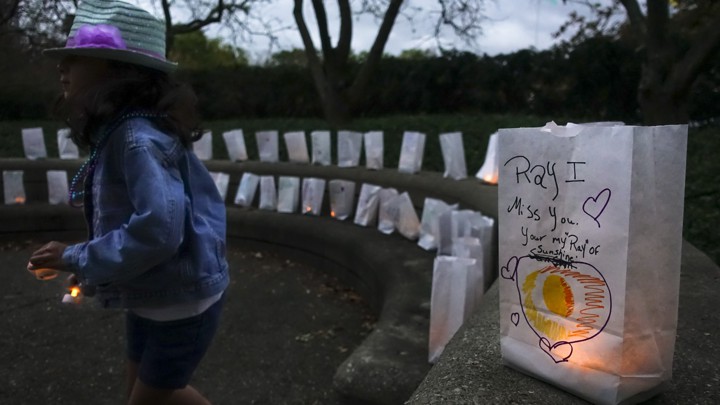The U.S. has a long history of misunderstanding mental-health struggles.AMANDA MULL

It wasn’t all that long ago that many people wouldn’t say “cancer” in polite conversation. Because the disease was so deadly and so poorly understood, mentioning that someone had The Big C could seem to imply that the person had brought the misery of the disease on himself or herself.
Although that #stigma persists in some ways—lung cancer, for example, is still culturally tied to tobacco use—things have gotten a lot better. People shave their heads in solidarity with loved ones going through chemo, and breast-cancer pink is the stuff of corporate-marketing legend.
#JamesDonaldson notes:
Welcome to the “next chapter” of my life… being a voice and an advocate for #mentalhealthawarenessandsuicideprevention, especially pertaining to our younger generation of students and student-athletes.
Getting men to speak up and reach out for help and assistance is one of my passions. Us men need to not suffer in silence or drown our sorrows in alcohol, hang out at bars and strip joints, or get involved with drug use.
Having gone through a recent bout of #depression and #suicidalthoughts myself, I realize now, that I can make a huge difference in the lives of so many by sharing my story, and by sharing various resources I come across as I work in this space. #http://bit.ly/JamesMentalHealthArticle
Christine Moutier, the chief medical officer at the #AmericanFoundationforSuicidePrevention, hopes Americans’ understanding of #suicide is on a similar path. “Cancer was shameful to think about or talk about, which shows you how much things really can change,” she told me in an interview at the Aspen Ideas Festival, co-hosted by the Aspen Institute and The Atlantic. “Mental health is just now undergoing that period of growth and transition that’s informed by science, but the average person doesn’t really understand all that yet.”
Even in psychiatry, Moutier explained, #suicide was “kind of an orphan topic, and from a clinician standpoint, it didn’t fit into any diagnostic category on its own. #Suicide was not looked at from a lens of health at all, but like a behavioral thing that people did for unclear reasons.”
The AFSP and other advocates have been pushing to change this public perception at a crucial time. The American suicide rate has crept up year by year since 1999, with a total increase of 33 percent in less than two decades, resulting in more than 47,000 deaths in 2017. More than a million Americans attempt to take their own lives every year, and millions more have suicidal ideation.
Moutier and many other researchers think that the key to decreasing the American suicide rate is approaching suicide not like a series of nebulous personal tragedies, but like a public-health crisis. That means more training for medical professionals on how to treat suicidal patients, more funding for research into suicide’s causes and preventive measures, and more education for the public on how to support loved ones who are struggling.
Moutier says it’s unclear exactly why the #suicide rate has changed so much, but there are many smaller explanations that add up to paint a larger picture: the economy, harsh cultural expectations, a broken health-care system, and what Moutier referred to as America’s culture of stoicism, which can push people to suffer alone. “We really celebrate self-sufficiency in this culture way too much,” Moutier said.
Because Americans have long been encouraged to keep their mental-health struggles in the shadows, many people lack basic skills for offering someone support. “If you see someone choking or struggling in some way physically, you probably want to offer a hand,” Moultier said. But she pointed out that people often hesitate to do the same when a loved one is struggling with mental illness or suicidal ideation, sometimes out of a simple desire not to cause embarrassment by asking personal questions.
“It’s important to say, Okay, I might be the only one who is noticing. So don’t ignore it or write it off to the stress of the day or assume someone else will notice,” Moultier said. Even among first responders and medical professionals, training on how to help people who are suicidal can be poor, and improving those responses is a chief concern among public-health advocates.
In the meantime, Moutier recommends regularly checking in with friends and family who are having a hard time and asking them about what they’re feeling. “If you think about it, that’s what we all want—to be heard and to be seen,” she said. “To have a conversation like that, it requires a lot of resisting the impulse to jump in with a quick fix or to try to talk them out of what they’re experiencing.”
Her recommendation might sound simple, but there’s significant evidence that it helps those at risk for #suicide. In a health-care system with high costs and a dearth of trained mental-care providers, a conversation with a friend could make all the difference.



